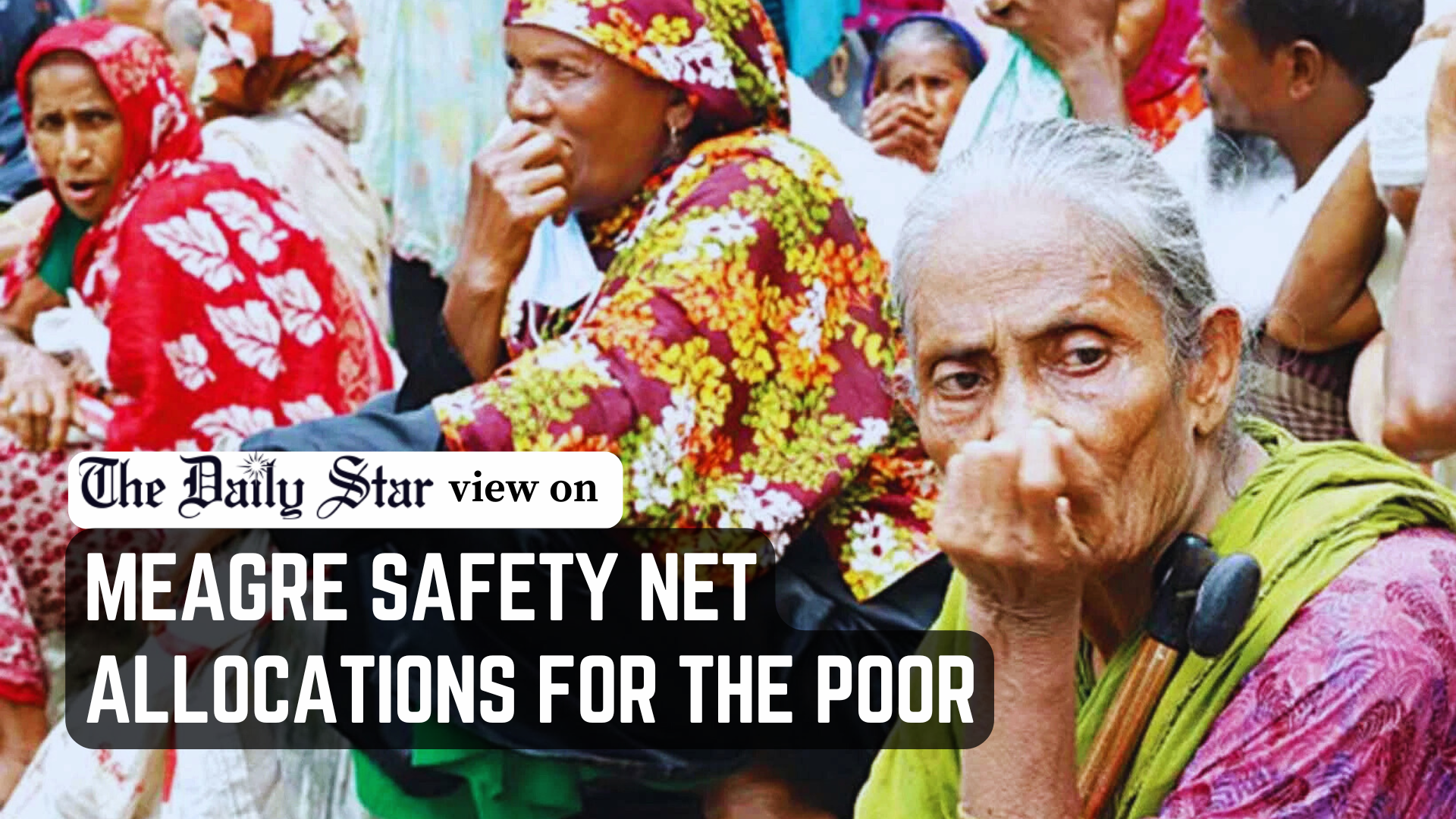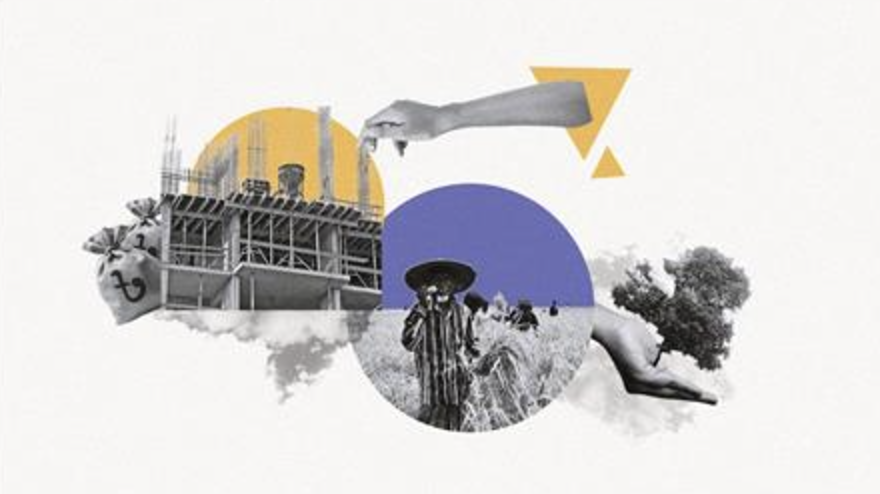The dangerous consequences of USAID fund freeze

In 2019, I worked with a USAID-funded project called Nobo Jatra, which was implemented across 40 unions in the Khulna and Satkhira districts of Bangladesh. One of these unions was Buri Goalini, located in Shyamnagar Upazila. Like many other villages in the southwestern region of the country, Buri Goalini suffered from high salinity levels, leading to a severe scarcity of safe drinking water. To address this critical issue, our project decided to construct a Reverse Osmosis (RO) system, a technology of water purification at a cost of Tk 25 lakh. The plant had the capacity to purify approximately 5,000 litres of saline water daily, providing a vital source of clean drinking water for the surrounding vulnerable communities.
To ensure sustainability, we developed a business model centred around the water plant, forming a water management committee comprising members from the local area. The model included hiring two staff members responsible for plant operations, water sales, and maintaining financial records. Additionally, we introduced a system of water vendors who distributed purified water in jars to the most remote households. This initiative not only provided clean water but also created employment opportunities for the local community.
When Super Cyclone Amphan struck the coastal belt in 2020, I witnessed firsthand how this water plant became a lifeline for affected communities. With traditional water sources contaminated by saline intrusion and flooding, the plant supplied thousands of litres of safe drinking water to displaced families and those in urgent need. Thanks to USAID.
This is just one small example of how a USAID-supported development project transformed lives in a remote village in Bangladesh. Similar initiatives funded by USAID have made significant impacts across the world, demonstrating the vital role of international aid in addressing humanitarian challenges worldwide. In 2023, Washington disbursed $72 billion in foreign aid across nearly 180 countries.
However, the scenario changed when US President Donald Trump imposed a sweeping freeze on US foreign aid worldwide, resulting in hundreds of internal and external contractors working for the US Agency for International Development (USAID) being put on unpaid leave or terminated. The decision by the world's single largest donor has sent shockwaves across the world, with aid groups warning that the move will put lives at risk.
Washington stated that this was a temporary arrangement for 90 days to align with the "America First" foreign policy and "prevent the waste of taxpayer money". However, uncertainty loomed among development partners worldwide regarding how and when they could resume their work and whether their programmes were covered under "life-saving humanitarian assistance." Millions of development partner staff were forced to leave or were terminated for the 90-day period, leaving them uncertain about their future.
After the World Bank, Asian Development Bank, and JICA, USAID remains the fourth-largest development partner in Bangladesh, implementing over 100 projects in sectors such as health, education, democracy, good governance etc. In the 2023 financial year, the agency provided approximately $490 million to Bangladesh. In last September, USAID committed over $202 million for the ongoing year. However, following Trump's order, a directive was issued instructing all USAID/Bangladesh implementing partners to immediately cease, suspend, or stop any work performed under contracts, task orders, grants, cooperative agreements, or other acquisition or assistance instruments. As a result, project interventions were halted, leading to thousands of job losses.
According to a report by The Daily Star, icddr,b, one of USAID's trusted partners in Bangladesh, issued termination letters to over a thousand employees working on USAID-funded programmes. Similar reports emerged from other UN agencies, international organisations, and national NGOs. However, the Rohingya response programme was exempted from these sanctions, allowing continued support for displaced communities.
Not only in Bangladesh, but the 90-day halt will also have severe consequences worldwide, particularly in some of the most fragile contexts. In 2024, the US was the largest donor for every country-based Humanitarian Response Plan (HRP), accounting for 50.3 percent of total funding across 24 crisis-affected countries. This abrupt pause jeopardises millions of lives, increasing risks of food insecurity, displacement, and the collapse of critical services, including healthcare, protection, and shelter. Countries like El Salvador (81.6 percent), Guatemala (84.5 percent), Honduras (66 percent), Colombia (69 percent) are almost entirely dependent on US contributions, making them highly vulnerable. The funding freeze is expected to create a domino effect on global humanitarian aid, disrupting food assistance, clean water access, education, and conflict stabilisation programmes worldwide.
In 2023, Bangladesh was the 20th largest recipient of US economic assistance, receiving $550 million. Meanwhile, Ukraine topped the list, securing $14.4 billion in aid, while Jordan ranked second with $770 million. Other notable recipients included Yemen and Afghanistan, which received $359.9 million and $332 million respectively. By sector, the US allocated the largest portion of its aid—$19 billion—to economic development. Health programmes followed, receiving $16 billion, while humanitarian assistance totalled $15.6 billion. Additionally, the US provided $8.2 billion in military aid to allies worldwide, with nearly half directed to Israel and Egypt.
One of the most affected programmes due to recent funding pauses is the President's Emergency Plan for AIDS Relief (PEPFAR). Launched by President George W Bush in 2003, the initiative has received approximately $120 billion to date and is credited with saving 25 million lives, including 5.5 million children, across 50 countries.
In addition to service disruption and job losses, this sudden freeze will erode trust in partnerships, affecting project implementation, aid delivery, contractual relationships, and community trust. Such uncertainty undermines years of humanitarian and development progress and weakens confidence between donors, INGOs, stakeholders, and local communities. Furthermore, this massive pause highlights the development sector's dependency on donor funding, raising concerns about the stability of career paths within the industry.
This sudden shift raises critical questions about what would happen if the US were to halt funding entirely, as some political changes might suggest. How would we respond if donor support, which we've relied on for decades, were to disappear? Why have the thousands of NGOs, working for years, failed to develop their own strategies for sustainability? These are vital questions not just for us, but for all developing countries, where humanitarian aid has played a pivotal role in alleviating suffering during ongoing crises. This moment calls for a serious reassessment of how we approach aid dependency. Are we creating sustainable systems and fostering self-reliance, or are we simply waiting for the next round of foreign assistance to fill the gaps?
In recent years, USAID has faced significant challenges in delivering effective foreign aid. Acknowledging these concerns, they released a report in November 2024 titled Top Management Challenges, which highlighted the need for measurable, lasting impacts, particularly in conflict zones like Ukraine and Gaza. The agency relies heavily on international organisations such as the UN to distribute aid, but oversight remains a serious concern, with risks of fraud, mismanagement, and exploitation. Staffing shortages further complicate operations, limiting USAID's ability to respond swiftly to crises. Budget constraints and political shifts add to the uncertainty, forcing USAID to adapt while maintaining accountability. Despite these hurdles, the report expressed hope that the agency would continue safeguarding aid effectiveness and transparency in an increasingly volatile global landscape.
As someone who previously held a senior position in a USAID-funded project, I echo these concerns and believe an extensive review of strategy is necessary. USAID should avoid duplications, reduce unnecessary spending on excessive evaluations, and instead prioritise monitoring, evaluation, and direct support to vulnerable communities. However, cutting funding indiscriminately is not the solution.
It is devastating to see a friend in East Timor lose funding for a small business, a hospital for Myanmar refugees shut down, contraceptive supplies cease in remote South Sudan, and thousands of jobs vanish—ultimately risking the lives of the most vulnerable. I can only imagine the conversations happening between a staff member laid off last night and her school-going child, or the anguish of a pregnant mother receiving notice that her monthly stipend under a safety net programme has been discontinued.
The human cost of these decisions is immeasurable.
Mohammed Norul Alam Raju is researcher and development activist, currently residing in Belgium, pursuing higher studies in Development Policy and Management. He can be reached at: raju_norul@yahoo.com.
Views expressed in this article are the author's own.
Follow The Daily Star Opinion on Facebook for the latest opinions, commentaries and analyses by experts and professionals. To contribute your article or letter to The Daily Star Opinion, see our guidelines for submission.




 For all latest news, follow The Daily Star's Google News channel.
For all latest news, follow The Daily Star's Google News channel. 


Comments